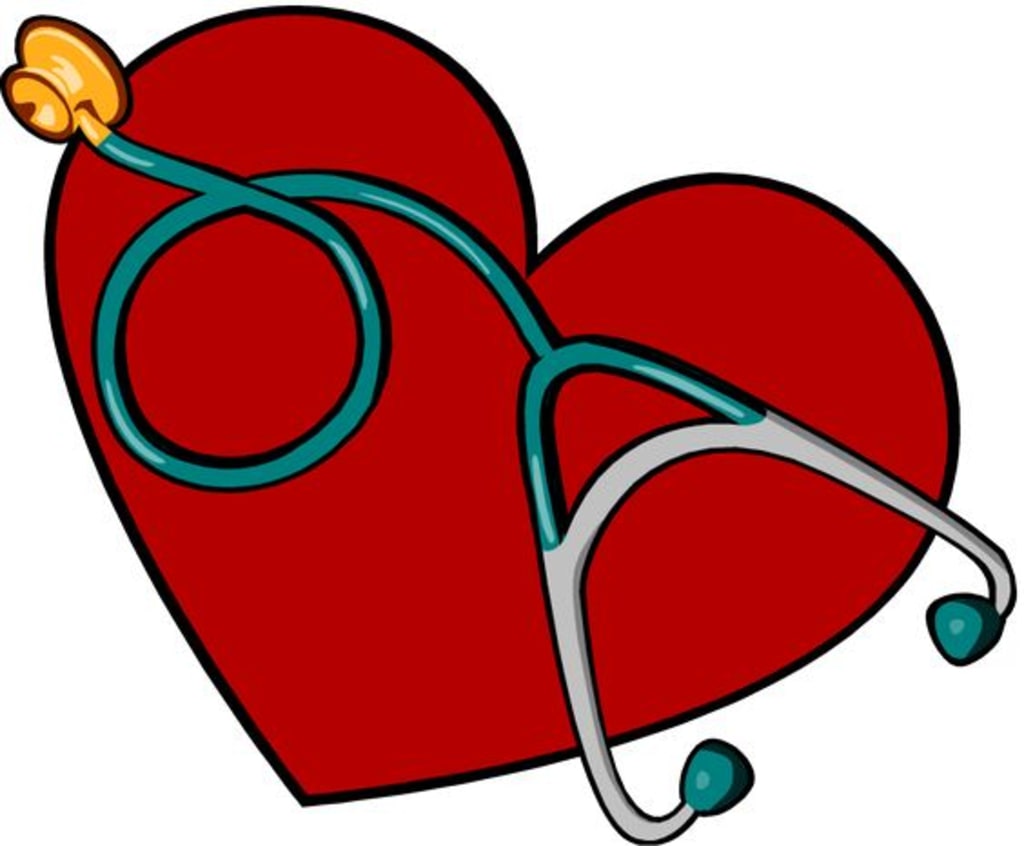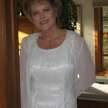The Gift
Life lessons may come from the most unexpected places....

The clanking of gurney wheels signaled the patient's arrival to my unit before she could be seen. Pushed by weary paramedics and lost in a shroud of linens, she was rolled by the nurse's station toward her assigned room. This '47-year-old female, with end-stage multiple sclerosis', had an infection requiring long-term antibiotics, an appropriate patient for my floor. With paper work in hand, I entered her room, hurriedly assessed her, and requested required signatures from her spouse. He was in a wheelchair and, in passing, I wondered why, but there was no time for superfluous conversation as my shift was about to end. If I never met this patient again, I would not be able to describe her...just one more broken body. A few days later, however, I was the nurse assigned to this patient's care. Now I would have to take a closer look. I will call this patient 'Glory.'
In my periphery, I watched Glory interact with her husband. They engaged in what appeared to be a unique language only they could comprehend. The patient was motionless from the base of her neck down. Her ability to breathe was made possible by the paired sternocleidomastoids and scalene muscles in her neck, endlessly lifting her rib cage. At this stage, her diaphragm was useless. MS left her with impaired vision and poor hearing. An amplifier apparatus was over her ears. Occasionally, she had enough energy to force sufficient air over her vocal cords, producing a guttural sound. Her eyes darted back and forth and, when an attempt to communicate was unsuccessful, she appeared to sink into frustration and despair. I tried not to intrude during this intimate exchange while still performing my physical assessment.
The skin on Glory's legs appeared tan and hydrated. I found minimal muscle wasting. Confirming a note in her medical record, a long scar on her left leg gave testimony to a spiral break of her femur seven years prior. Contractures, usually so severe in end-stage MS patients, were not evident in Glory. It was still possible to stretch and reposition her legs with relative ease. Her skin was cool to the touch, but the disease did not allow her to sense this. Unable to move herself, she bore an ulcer on her right hip that exposed muscle, ligament, and bone. Her abdomen was rife with man's intervention. To the right, a urostomy bag covered an opening that allowed urine to leave her body. To the left, a colostomy bag collected body waste. In the center, a peg tube had been placed to allow for feeding, hydrating, and medication administration. A central line had been placed in her right upper arm and would be used to give her the prescribed IV antibiotics. Chipped, pink nail polish decorated her fingertips. She wore a bra. Very few patients wear a bra. I was glad she did. It made her unique.
The first day I cared for Glory was like an awkward first date, unsure if what I was doing was right, appropriate, appreciated. I could feel her watch me as I performed by nursing duties. I was able to understand a few words and nods of assent or dissent. She denied feeling pain. At times, a light shone in her eyes and a smile would gently curl her lips. Her daughter was chattering in a chair next to her, discussing the state fair and her prized rabbit. She was a pretty girl. She sat surrounded by her father and grandmother, both in wheelchairs, and her mother lying in a hospital bed. I wondered about her reality. She seemed unaffected. After my shift ended, I could not get Glory out of my mind.
I felt humbled in Glory's presence. She had her mind, the ability to breathe, and a limited ability to communicate. It appeared that everything else had been taken away...a slow excising of everything she was or could be. A phrase entered my mind, insinuating itself, 'faith without works is dead.' I was taught this as a child and set out on a life of works that ended up leaving me exhausted. I was perplexed how Glory had such an affect on me when it appeared she was incapable of 'works.'
The second day with Glory felt more natural. We were both, to a certain extent, a known factor. In a rare lull that comes occasionally in the afternoon, I had some time to spend with her after all my prescribed duties were done. I sat next to her on the edge of the bed, close to her left ear as that was where her hearing was the best. Sunshine darted off a crystal prism at her bedside, giving a bit of warmth to the dismal hospital room. I told her I admired her grit and determination. I asked her to help me understand what she wanted. She did. She mouthed many words, spelled words I could not catch, and, every once in a while, spoke audibly.
"How many cans of Fibersource am I getting a day?"
"I feel dry. Could you give me more flushes in my peg tube?"
"Would you move the flowers from in front of my information board?"
"The pillow under my left arm hurts my shoulder."
Her questions and observations were relevant, but, somehow, unexpected. Her consciousness of her care and surroundings surprised me. We spoke on.
"I was diagnosed with MS when I was 23."
"My husband was injured in a motorcycle accident."
"My daughter is 15."
Like a patchwork quilt, I began to see bits and pieces of Glory that made her more to me than just another patient. Before leaving her room, she looked at me with such intensity and said, "If I give up, it will be over for me." I left her room enlightened.
The next morning I felt anticipation and ease upon entering Glory's room. With duties done, I told her I would return at a certain time, but did not do so. Later, I apologized and, in the most general of terms, I let her know I was caring for an elderly patient who was being weaned off a ventilator and was very distressed and anxious. She said "ok" and let me know she never wanted to be put on a vent. I marveled at how quickly I found myself able to understand Glory's language. I left her room to chart information but an alarm took me back in. Her eyes were closed and I tiptoed to the IV machine to check the alert. Glory's eyes opened and I apologized for waking her. She said, with little difficulty, "I wasn't sleeping. I was praying for the patient on the vent."
I can't remember what I said to Glory in that moment, but clarity of thought struck me like lightning. She could not work. She could not take her daughter shopping or cook a meal for her. She could not hold her husband or make love to him. Glory could not bathe herself, turn herself, dispose of her own waste, or itch her own nose, but, in that moment, she taught me a lesson.
With grace, Glory still had the ability to affect others. With compassion, she thought of another's situation with concern and prayer. With prudence, she tried to care for her physical needs in the best way she knew how. By example, she showed me that, it is not a storm of activity that brings us inner peace, it is the knowing that it is enough to be just who we are. In Glory's whisper, more powerful than any scream, she reminded me that faith is a gift, not something we earn.
About the Creator
Sandra Hudson
I am an entrepreneur, retired Nurse, artist, mother, wife, and grandmother. I have written for pleasure all of my life. I now have more time to pursue this passion. Hello to all!!
Enjoyed the story? Support the Creator.
Subscribe for free to receive all their stories in your feed. You could also pledge your support or give them a one-off tip, letting them know you appreciate their work.






Comments
There are no comments for this story
Be the first to respond and start the conversation.